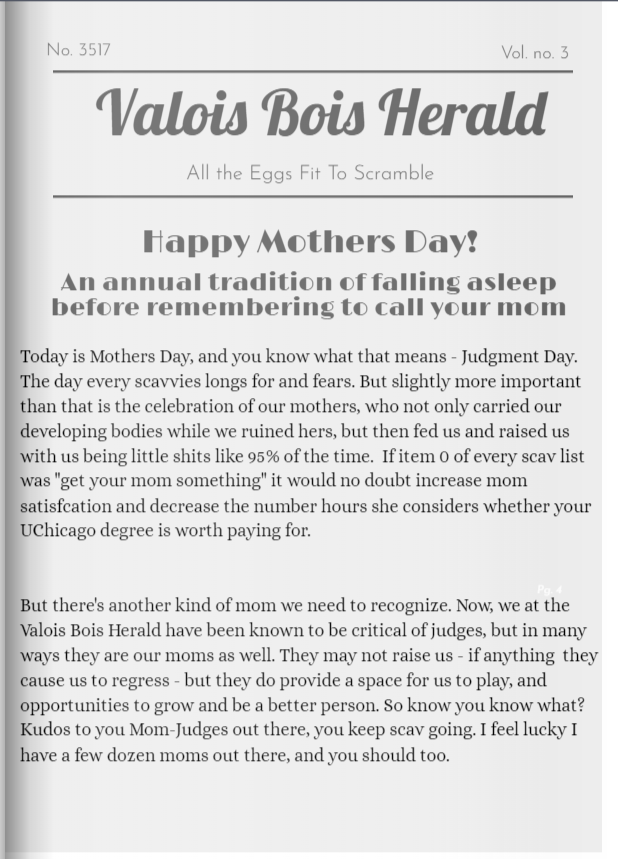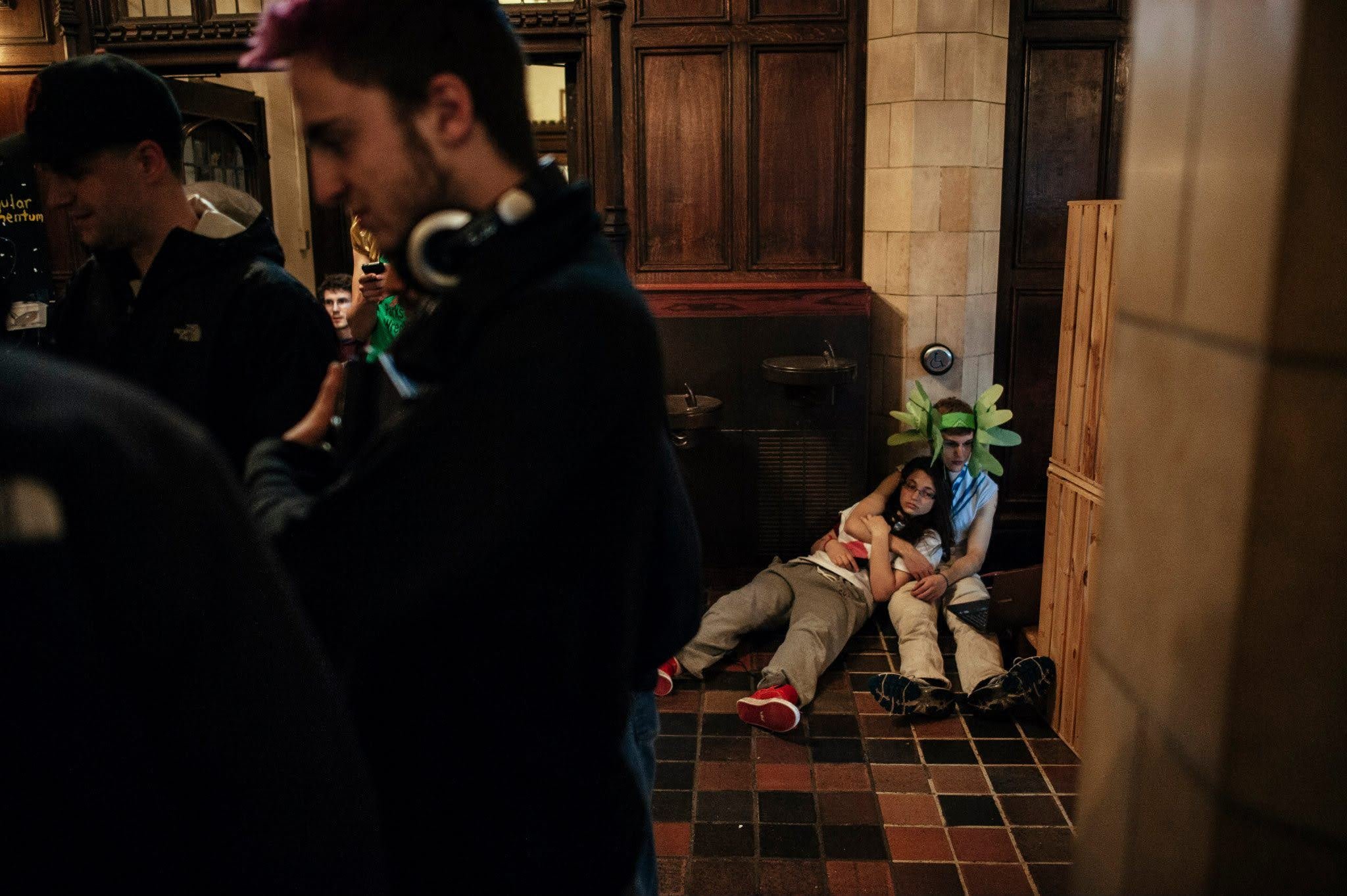Judgment Day
Traditionally took place on Mother’s Day, because, well….
In the first year, Judgment Day, aka the awarding of points, was, simply, a big mess. The founders admit they had no idea what they were doing. Judging and tabulating took many hours, partially because there were many more participants than they expected. Each judge focused on one team and considered all of their items, and each judge had their own criteria for awarding points, which meant there was little consistency.
The next year, they decided to get serious about judging, and streamlined operations. Cassie Scharff’s future husband Bob Hallberg had a suitcase-sized computer, and created a spreadsheet to assist with the scoring. This was an improvement, but more needed to be done. Eventually, each judge adopted one page of the list, usually one they wrote, and scored those items for each team.
Thanks to the early judges’ groundwork, Judgment is efficient today. Teams are asked to organize their items by page, with completed items highlighted. Judges hold up numbers indicating which page they are ready to judge, and teams beckon the appropriate judge to score their items. Judges may award partial points when deemed appropriate. The last two entries in the official rules state:
- Decisions. All decisions of the Judges are final. Final.
- Final. See Decisions. [45 minimum to no fucking limit reckoning points]



